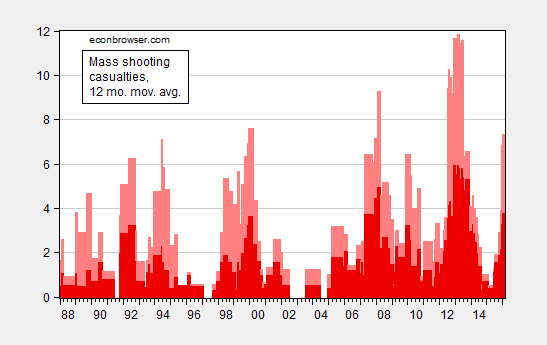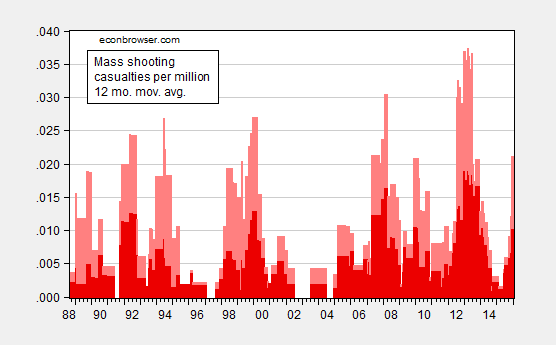Given worries regarding an imminent slowdown in the wake of the stock market decline, it’s of interest to see what the term premium is signalling.
China Navigates the Trilemma (and Slowing Growth)
Benn Steil and Emma Smith at the Council on Foreign Relations present an interesting picture of Chinese reserves.
Stall Speed in Wisconsin?
The Philadelphia Fed has released leading indicators for December. Essentially zero growth in Wisconsin over the next six months is predicted.
Guest Contribution: “Does China’s Capital Flight respond to US Monetary Policy?”
Today we are fortunate to present a guest contribution written by Yin-Wong Cheung (City University of Hong Kong), Sven Steinkamp (Universität Osnabrück) and Frank Westermann (Universität Osnabrück).
Of Morality Plays and Technocratic Assessments
Or, breaking up the big banks might provide some visceral joy, but it’s not clear to me that solves the key problem of financial fragility in modern capitalist systems.
Negative interest rates
For an economy with underutilized resources or too low a rate of inflation the traditional prescription for monetary policy is to lower the interest rate. Central banks around the world tried to do that in response to stubbornly weak economies, bringing the overnight interest rate in many countries all the way to zero. But when that didn’t seem to be getting the job done, the Bank of Japan last week decided to go negative, charging banks 0.1% interest for excess reserves. With this step Japan now joins the Euro system, Switzerland, Denmark, and Sweden, all of whom have had negative interest rate policies in place for over a year. Here I describe how negative interest rates work, what they are intended to accomplish, and some of the limitations of using this policy to try to stimulate the economy.
Continue reading
This Wisconsin Resident Feels Much Safer Now
From FoxNews6:
“Gov. Scott Walker is set to sign a bill that would allow people to carry concealed switchblades and knives.”
Manufacturing Sector Resilience…So Far
The employment release (see also [Duy/Economists View]) provided some interesting insights into how manufacturing has fared, in the wake of the appreciation of the dollar (and the slowdown in the world economy).
“China’s efforts to expand the international use of the renminbi”
That’s the title of a new, and illuminating, report written by Eswar Prasad. The entire report is here. This is a must-read for those interested in RMB internationalization.
Mass Shooting Casualties Trending Up (Again)
Figure 1: 12 month moving average of mass shooting casualties; deaths (dark red), wounded (pink). Source: Mother Jones, GunViolenceArchive.org. for January 2016, and author’s calculations.
Update, 2/5 1:45PM Pacific: Title amended to address m4570d0n‘s pedantic comment.
Update, 2/6, 10:30AM Pacific: Reader joe argues per capita figures would be more intuitively accessible. Here is the relevant graph.
Figure 2: 12 month moving average of mass shooting casualties per million; deaths (dark red), wounded (pink). Source: Mother Jones, GunViolenceArchive.org. for January 2016, and author’s calculations.
Note: Mother Jones used a 4 death threshold for definition of mass shooting; I have used that criterion for tabulating January 2016 numbers.

